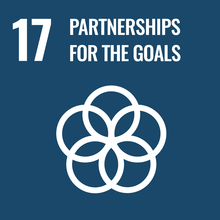
Goal 17: Strengthen the means of implementation and revitalize the global partnership for sustainable development
We are all in this together and we can only realize the SDGs with strong global partnerships and cooperation. At the heart of the UN SDG agenda is SDG#17, which highlights that in order to achieve success, we need to develop inclusive partnerships — at the global, regional, national and local levels — that place people and the planet at the center. By establishing a shared vision and goals (with measurable targets) the UN aims to mobilize developed countries to assist developing countries, increase access to science and technology worldwide and improve trade disparities and other systemic issues that limit sustainable development in many areas.
Infographic and Overview Why It Matters Things To Do The Nineteen Targets
Sustainable Development Goal #17 explores the broader ways in which universities support the SDGs through collaboration with other countries, promotion of best practices and publication of data. At the University of Minnesota, this includes research done in collaboration with researchers and countries around the world, community level outreach across Minnesota, partnerships with non-profit organizations and, most significantly, how as a University we are training and educating future generations to be passionate and aware of the benefits and challenges and interconnectedness of sustainable development worldwide.
Relationships for SDG Policy
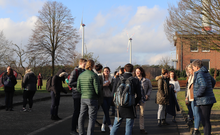
Climate-Smart Municipalities (CSM) is a multi-partner intergenerational collaboration between Minnesota and Germany with twelve cities at its core that have decided to pursue comprehensive sustainability and climate goals that generate measurable local benefits.
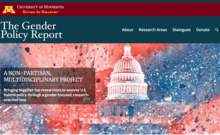
The Gender Policy Report blog, produced by the Center on Women, Gender, and Public Policy, offers diverse perspectives on how public policy matters for gender equality across a range of issues, from criminal justice to education to immigration.
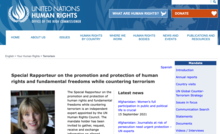
University of Minnesota Law Professor Fionnuala Ni Aolain serves as the UN’s Special Rapporteur on the promotion and protection of human rights and fundamental freedoms. Aolain reports regularly to the UN’s Human Rights Council and General Assembly about inter alia identified policies and practices.
Cross-Sectoral Dialogue
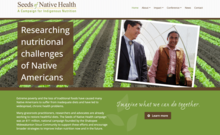
The Seeds of Native Health campaign was an $11 million, national campaign founded by the Shakopee Mdewakanton Sioux Community to support existing efforts and encourage broader strategies to improve Indian nutrition now and in the future.
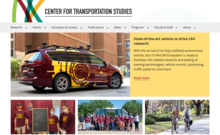
The Center for Transportation Studies research conference convenes researchers and practitioners to highlight new learning, emerging ideas, and the latest innovations in transportation.
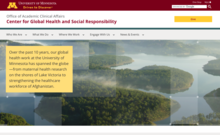
Over the past 10 years, global health work at the University's Center for Global Health and Social Responsibility has spanned the globe—from maternal health research on the shores of Lake Victoria to strengthening the healthcare workforce of Afghanistan.
International Collaboration Data Gathering
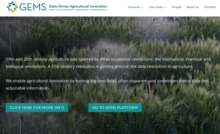
G.E.M.S® — an international agroinformatics initiative jointly led by the College of Food, Agricultural and Natural Resources Sciences and the Minnesota Supercomputing Institute is committed to developing the tools and systems required to tackle the real world challenges of turning data into actionable information.
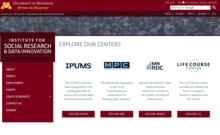
The Institute for Social Research & Data Innovation leads several data-related projects. Click the IPUMS link to learn about sets of census, health, education, and other types of data relevant across the SDGs.
Collaboration for Best Practice
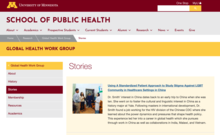
The mission of the SPH Global Health Work Group is to foster interdisciplinary and cross-cultural partnerships and collaborations to improve the health and wellbeing of communities around the globe through research, teaching, training and service.
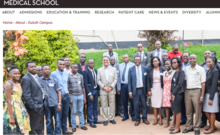
The Duluth Global Health Research Institute (DGHRI) is dedicated to developing research and educational programs that promote the discovery of knowledge and the exchange of people and ideas, regarding mutual health problems on a global scale.
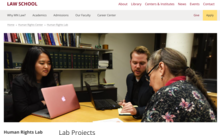
The is an interdisciplinary space for faculty and students at the University of Minnesota to investigate and model ways that cutting-edge research can be used more effectively with NGOs, communities, institutions, and policymakers to reduce inequalities in the enjoyment of human rights.
Collaboration with Non-Profit Organizations
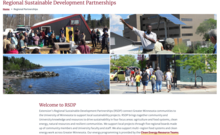
Extension's Regional Sustainable Development Partnerships (RSDP) connect Greater Minnesota communities to the University of Minnesota to support local sustainability projects. RSDP brings together community and University knowledge and resources to drive sustainability in four focus areas: agriculture and food systems, clean energy, natural resources and resilient communities.

The Natural Capital Project describes an interdisciplinary collaborative effort between the University of Minnesota, Stanford University, The Nature Conservancy, and the World Wildlife Fund and provides information on the benefits of nature to inform decision-making processes.
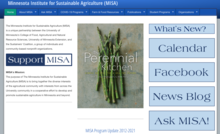
The Minnesota Institute for Sustainable Agriculture (MISA) is a collaboration between the University of Minnesota's College of Food, Agricultural and Natural Resource Sciences, University of Minnesota Extension, and the Sustainers' Coalition, a group of individuals and community-based nonprofit organizations.
Commitment to SDG Education
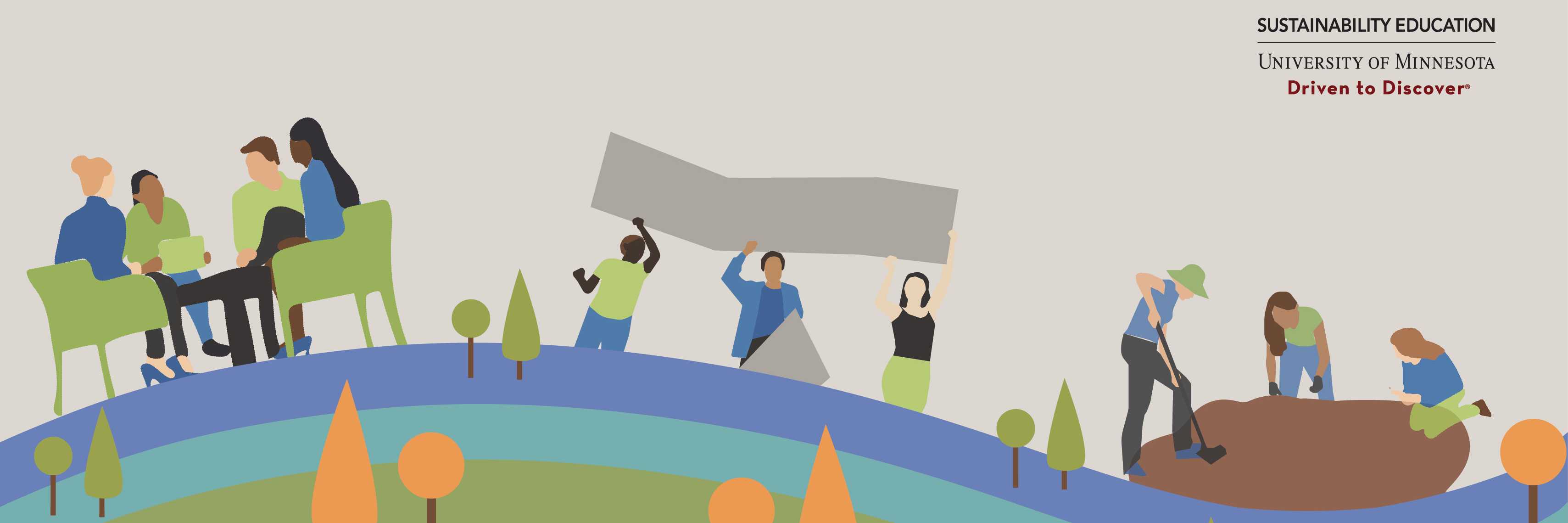
The Sustainable Development Goals Course List is a systemwide effort by the UMN Sustainable Development Initiative to highlight educational opportunities across the University related to the sustainable development goals. A prototype website is up and faculty are being invited to submit additional courses that fit the goals.
Visit the SDG Course List Prototype Website
The University of Minnesota-Duluth Sustainability Portal provides an easy to use map to find courses mapped to all the SDGs across the campus.
Undergraduate Education
Found in each campus’ liberal education requirements, also called general education, all undergraduate students at the University of Minnesota are required to take course(s) relevant to the sustainable development goals. Below is a summary of how the sustainable development goals are incorporated into the requirements for each undergraduate learner.
- Crookston: Students must fulfill graduate requirements in ten goal areas. Relevant to the sustainable development goals, students must take at least one course under the goal area Global Perspectives, at least one course under the goal area Ethical and Civic Responsibility, and at least one course under the goal area People and the Environment.
- Duluth: Students must fulfill graduation requirements in key topic areas. Relevant to the sustainable development goals, students must take at least one course under the topic Global Perspectives and at least one course under the topic Sustainability.
- Morris: Students must fulfill graduation requirements under the umbrella Expanding Perspectives. Relevant to the sustainable development goals, students must take at least two courses under the theme The Global Village, which includes courses on People and Environment, International Perspectives, and Ethical and Civic Responsibility.
- Rochester: Students must fulfill graduate requirements under general education themes. Relevant to the sustainable development goals, students must take at least one course in each of the following themes: Civic Life and Ethics, the Environment, and Global Perspectives.
- Twin Cities: Students must fulfill graduate requirements under liberal education themes. Relevant to the sustainable development goals, students must take Race, Power and Justice, and at least one course in three of the following four themes: Civic Life and Ethics, the Environment, Global Perspectives and Technology and Society.
In addition to the liberal education requirements for all students, students on all five campuses have options to earn a minor in sustainability. The Twin Cities, Duluth, Morris and Crookston campuses each offer a sustainability minor for residential students and Crookston offers an online sustainability minor. Rochester students are able to complete a sustainability minor through the Twin Cities campus or online. These Minors all immerse students in learning the principles of sustainability, systems thinking and multiple ways of knowing and offer them experiential learning and leadership opportunities. Students get to explore real-world problems from a variety of academic perspectives, reflecting the breadth and wide-ranging applicability of the principles of sustainability.
Learn More About Twin Cities Campus Sustainability Studies Minor
Learn More About Morris Campus Sustainability Leadership Minor
Learn More About Duluth Campus Environmental, Sustainability and Geography Minor
Learn More About the Crookston Campus Sustainability Minoror the Crookston Online Sustainability Minor
Graduate Education
Three of the five University of Minnesota campuses, Twin Cities, Duluth and Rochester offer graduate degree programs. Many of these programs focus on SDGs within the departments, with the system-wide Institute on the Environment (IonE) ensuring that an opportunity for sustainability and SDG education is available to all graduate and professional students in any program.
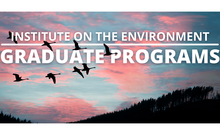
The Institute on the Environment offers a number of interdisciplinary programs, workshops, courses and resources including coaching and mentoring to help graduate, professional students, and postdocs play a critical role in creating a sustainable future for Minnesota and the world. The Institute’s Graduate Scholars are cohorts drawn from across disciplines to collaboratively engage in interdisciplinary research that effectively addresses complex sustainability and environmental issues. Topics and scope change each year, generally focusing on themes connected to specific SDGs. For example, the theme of agriculture and energy connects to SDG 15, Life on Land. The Institute’s faculty and staff affiliates provide topics and guide the cohorts.
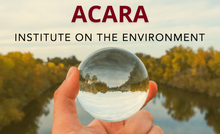
Acara is a leadership incubator program open to students from any discipline who want to be part of solving real-world challenges, like equitable access to clean water, health care, energy, and healthy food. The program supports students with a passion, project, or idea as they take it to the next level – whether that be developing an app or student group, starting an advocacy campaign, or developing a social enterprise.
Educational Outreach
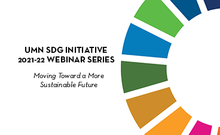
The SDG Initiative Webinar series provides a free, interactive opportunity to highlight and share the work of UMN SDG related research, outreach and education. In 2020, the webinar series focused on issues tied to inequality with a focus on Minnesota and included discussions on food insecurity, inequality in our communities, sustainable housing and access to clean water.
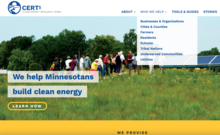
The Clean Energy Resource Teams (CERTs) are focused on connecting individuals and communities in Minnesota to the resources they need to identify and implement community-based clean energy projects. Since 2006, CERTs has awarded nearly 400 energy seed grants totaling over $1.3 million.
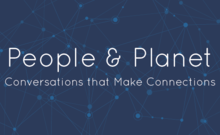
The People & Planet: Conversation Series explores the many intersections of our changing global climate and the human and natural systems that also shape our world. In 2020, four free events took place covering the planetary health framework, resilient food systems, drinking water contamination – and the connection between biodiversity loss and emerging infectious disease.
